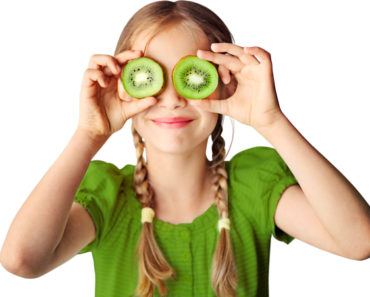[nextpage title=”Next Page” ]Studies have suggested that eating more produce might improve mental health. Several scientists in New Zealand set their minds to finding out if this was true. They wondered if eating extra fruit and vegetables each day would boost a person’s psychological well-being. The results were surprising…[/nextpage]
[nextpage title=”Next Page” ]
1. Food Groups

In 1956, the United States Department of Agriculture began grouping foods based on their nutritional properties. The early version of the Five Food Groups was a poster showing seven groups to explain that different foods help our bodies in varied and unique ways.
2. Benefit Of Fruits

Fruits contain essential vitamins and minerals that foods in other food groups do not provide in significant quantities. Getting people, even children, to eat fruits is usually not a chore. Many are naturally crunchy and juicy and, most important, sweet.
[/nextpage]
[nextpage title=”Next Page” ]
3. Vegetables

Getting kids to “eat their veggies,” on the other hand, is such a challenge it’s cliché. However, a misplaced decimal point and Popeye the sailor man propelled spinach sales and made the dark green vegetable popular—even among children. Here’s how it happened…
4. Spinach

in 1870, German chemist Erich von Wolf, recorded the amount of iron in the flowering plant. He accidentally put the decimal point in the wrong place, reporting 35 mg of iron instead of the more accurate 3.5. Spinach became heralded as an iron powerhouse. Popeye etched the myth into stone, and our generation is probably healthier because of it.
[/nextpage]
[nextpage title=”Next Page” ]
5. Fruits And Vegetables

Eating all kinds of fruits and vegetables as part of a healthy diet are thought to lower the risk of developing type 2 diabetes, heart disease, obesity, and stroke. Carotenoids in vegetables like carrots, Brussels sprouts, and squash may reduce the risk of certain cancers. And eating large quantities of non-starchy vegetables like broccoli, beans, and spinach may reduce the risk of stomach and esophageal cancer. But what happens if you eat extra fruits and vegetables each day?
6. The Study

The New Zealand study was led by Dr. Tamlin Conner of the Department of Psychology at the University of Otago. She and her colleagues enrolled 171 participants, all students between ages 18 – 25, and separated them into three groups.
[/nextpage]
[nextpage title=”Next Page” ]
7. The Groups

One group continued eating as they normally do. The second group was given, by hand, two additional servings of fresh fruits and vegetables each day. (Carrots, apples, oranges, and, of course, kiwifruit) The third group received prepaid vouchers to pick up produce and also text reminders to do so.
8. Psych Analysis

Each participant underwent psychological assessments, both at the start of the study and at the end. The assessments evaluated mood, vitality, and motivation as well as symptoms of depression, anxiety and other factors that determine mental health and well-being.
[/nextpage]
[nextpage title=”Next Page” ]
9. Back To The Question

Which returns us to our original question: Will eating more fruits and vegetables boost a person’s psychological well-being? The answer is yes, but it comes with a catch. This was displayed by one of the groups.
10. No Change

The group that received the vouchers and text reminders, as well as the group that did not change their eating habits, did not eat a significantly extra amount of fruits and veggies. Both of these groups showed no improvements in any psychological area being studied.
[/nextpage]
[nextpage title=”Next Page” ]
11. Positive Change

The group that was handed extra servings of produce ate most of it (3.7 servings daily) over the two-week period. This group experienced a change in psychological well-being. They showed improvements in vitality, motivation, and a sense of flourishing.
12. Giving

Besides the increased consumption of fruits and vegetables, the only other factor in the positive change was the act of personally handing this group the produce. These subjects were more likely to eat what was put in their hands, and these subjects experienced increased psychological well-being.
[/nextpage]
[nextpage title=”Next Page” ]
13. Or Perhaps…

Perhaps it was the act of giving that led to the subjects’ improved psychological well-being, and not the increased produce consumption itself? After all, receiving gifts can uplift anyone, possibly even if it’s just a kiwi and a carrot. However, this question was not addressed by the scientists.
14. Conclusion

Eating extra fruits and veggies is a good and healthful habit, and if you personally hand somebody extra servings each day, there’s a greater chance he or she will actually eat them. And according to the study, your recipient will enjoy improved vitality, motivation, and the feeling of flourishing.
[Featured Image Credit: Noted.co.nz]
[/nextpage]




